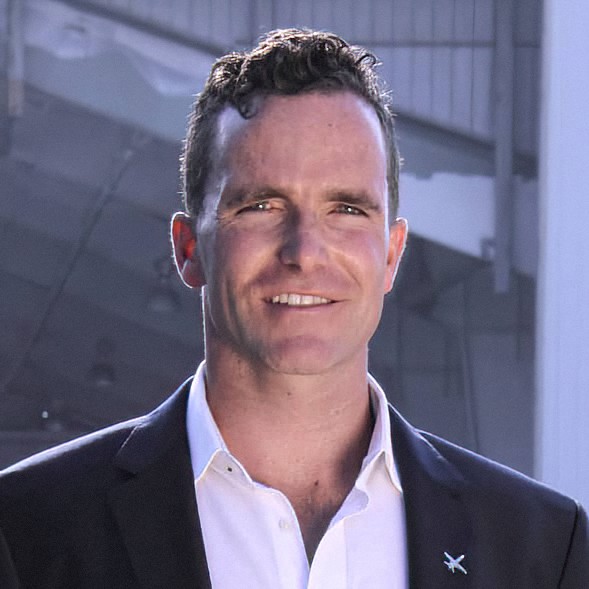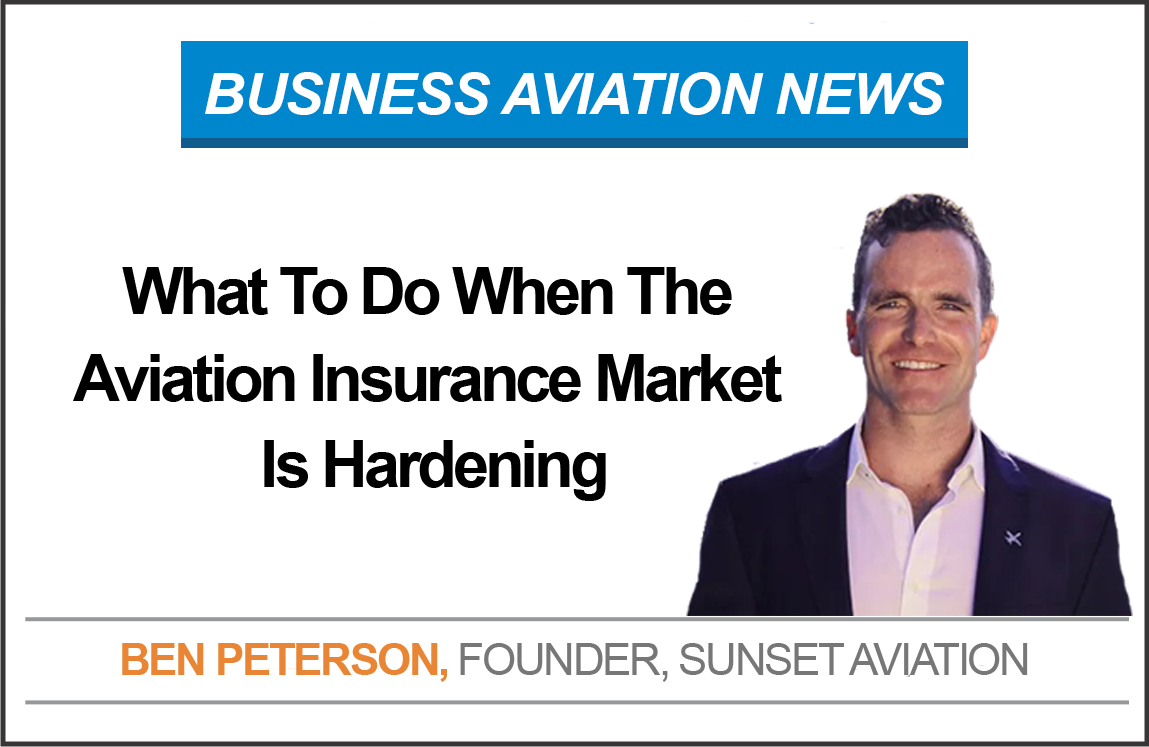Recently I have visited TBM Owners and Pilots, Citation Jet Pilots, and Cirrus Now. The topic that was prevalent at all three events was how the insurance market is changing and some people’s rates are up over 50%, whilst others haven’t increased at all. One important aspect of the insurance market changing was the focus on Owner Flown Turbine Aircraft and High Hull Value Aircraft. It has left a lot of pilots wondering how they can prepare best themselves for meeting aviation insurance company requirements.
Having a good understanding of how to best deal with underwriters will make the process a lot easier. Making sure that you’re a highly preferred risk to the insurance company will help give you options. You will want to make sure your profile shines. To accomplish this, you should follow the outlines we have listed for you below:
1. Pilot Training – Simulator vs. In-Aircraft
Should I do Simulator or In-Aircraft Training? – It’s essential that licensed pilots receive their Flight Safety, Simuflite, or Simcom completion certificate. Insurance companies will be looking for specific training when evaluating you. Having your Flight Safety or Simcom will outperform any in-aircraft training that you have received. Minimum training just doesn’t warrant enough clout with the insurance companies because it is a requirement that everyone must meet (specifically if you’re new to the aircraft, low make and model time). Now, if you do more training, the insurance companies will take more notice. Simulator training is also a very good way to impress the underwriters, so if possible, we highly recommend you complete every other year for turbine aircraft. If you are focused on your training and completing more than one training experience a year as well as simulator training, you will be in a much better situation when the underwriting process begins. One of the best ways of ensuring that the underwriter pays attention to your training is to make sure that the company you are training with is recognized by the insurance company. Not all underwriters will accept the in-aircraft training you completed. Selecting and approving the right training will save you a lot of time and headaches in the long run.
2. Hull Value
The hull premium aspect of your total annual premium will be anywhere from 60 to 70 percent, which can vary based on what policy you have. Most of your annual premium will be in your hull insurance. You always want to ensure the Hull at whatever the current market value of the aircraft is. By making sure your aircraft is properly valued and not over-insured or underinsured, you will be ensuring that the top underwriting interest is received every single year. Every underwriting company will evaluate the value of your aircraft compared to current Vref, Blue Book, Controller, or varied other sources. If the value of your aircraft is way off compared to market you may want to provide further explanation as to why (new avionics/TBO, interior/engine mods, low/high time).
3. Advanced Licenses and Ratings
Should I get a Commercial Pilot License? The market is hardening now so if you do not have that Commercial or ATP license, now may be a good time to go get it. During the underwriting process, insurance companies will prefer a new advanced license or an additional rating that you have acquired during the past year. A Commercial Pilot will always have a more favorable rating over a Private Instrument Pilot. By having your Commercial license, you are opening yourself up to a larger share of the market. Higher liability limit options are also an important thing to consider and are something that you would likely benefit from if you had your Commercial license.
4. Broker Market Grasp
When shopping around for the best aviation insurance broker, it is always best to look for one that has a large grasp on the market. You can ensure that your aviation insurance broker has a large grasp on the market by verifying that they have contracts will all of the aviation underwriting companies. Make sure you ask the broker what underwriting companies they have contracts with. If the number is low or not full you will have fewer options available to you when it is time to renew. Know that not all insurance underwriters are the same and you might not receive a quote year after year. They might cap their liability or insured value. By making sure your broke has full market share and the maximum amount of insurance companies to reach out to, you will in-turn be ensuring your best footing when it is time to renew your policy.
5. Additional Training Programs
Is your broker SELLING your risk to underwriters? Often times Owners and Pilots Associations like TBMOPA, CJP, COPA, MOPA, POPA, etc. will help fatten your pilot history form. Details like this help tell a story for the broker to SELL the risk. This can include more companies quoting, lower rates, and No Claims Bonus of 10.5%. I had a client win the “Maverick Best Pilot Award” for Avex’s Annual Safety Program, and the carrier gave us a No Claims Bonus on renewal.
6. Are you staying Current or are you staying Proficient?
Nothing beats experience, fly the plane. The more you fly, the more experience that you will have. You want to make sure that you fly more than 100 hours every year to ensure that you not only stay current but stay PROFICIENT. In order for the underwriters to consider your flight time in a positive way, you will want to make sure your flight hours do not drop under 100. If they drop under 50 you will take a hit in how insurable you will be. Pilots who see over 200 flight hours have seen the best market interest each year. Remember, the higher your flight hours the better. If you can, the best-case scenario would be to ensure you have over 100 hours of flight time each year and you are completing training that the underwriters will view favorably.
7. Choose your airplane partner carefully
Aviation insurance policies are always rated based on the lowest pilot on the totem pole (least experience). Having a good flight partner is extremely important and should be considered very carefully. The insurance companies will consider the experience and training of the lowest-rated pilot when forming the policy price and liability limits. For example, if one pilot is completing great (high times and good training), but wants their newly licensed friend, business partner, son or daughter wants to be listed as a Named Pilot, rates will be based on the least experienced pilot.
There can also be disadvantages for having too many fractional partners and/or dry leases to third parties. Insurance underwriters are often asked to extend coverage to fractional operating companies or dry lease operators (additionally insured) and therefore have to take on a greater risk profile. When this list is stacked beyond one or two, more carriers will happily pass on quoting or at a minimum charger additional premium. If you’re a hard risk to ensure from the start (low pilot flight times) this could put you in a difficult situation from an insurability standpoint.
8. Conclusion
Aviation insurance is in a league of its own and each policy is a completely different insurance contract, unlike in other insurance markets. The insurance companies do not use a blanket policy for groups of pilots, the policies are formulated specifically from each insurer. We provide policy evaluation services in order to ensure that our clients get the best underwriting considerations possible and will work to help you improve your rankings when it is time for your policy to be renewed. Every client is different and has their own unique circumstances. We work with each insurer to evaluate their strengths and weaknesses so that you are better prepared for the underwriting process. We will use this evaluation to make sure you are connected with the best insurer based on your specific needs. After your policy is established, we will continue to work with you to ensure the policy that you have continues to be the right option for you and meets all of your needs. We do not provide in-house legal counsel, but we will work with your attorney to ensure you have a contract that will be accepted in the aviation industry. We can assist with several different contract agreements and stand ready to assist you in establishing the best contracts.
When considering the best options when you trying to get the best rates from the insurance companies, you should evaluate and pursue everything we have listed above in a combined effort. This is especially important when the market hardens, and insurance companies are seeking out the best risks. When working with a broker they can help you plan your best course of action to help you look the best to the insurance underwriters. The broker cannot set the market conditions, but they are an asset when trying to look at the most appealing to the underwriters. These underwriting companies are looking at thousands of pilots so anything you can do to make yourself look more appealing will help you during this process.

Benjamin Peterson
Graduated from the University of North Dakota with a degree in Commercial Aviation as a Pilot and Flight Instructor. My first professional job was working for Cirrus Aircraft as an instructor.
